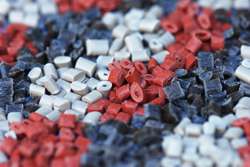Thermal imaging-based technology to identify those injection-moulded parts likely to fail

Non-destructive testing (NDT) technology developed with EU funding should boost the competitiveness of numerous European plastics manufacturers by decreasing lost money and time due to part failures.
Plastic components are commonly produced via a process called injection moulding. The raw material is mixed and heated together with a solvent over a large turning screw that melts it and 'injects' it into a mould. When the material cools and hardens, the mould is removed and the part remains.
The moulded part may be ready for distribution as is or it may be further processed in various ways such as painting or chroming (chrome plating).
Currently, manufacturers are unable to identify injection-moulded parts that are likely to fail during cooling or subsequent processing steps. This results in a tremendous amount of wasted time, money and material for the 25 000 small and medium-sized enterprises (SMEs) in the EU injection moulding sector. In addition, the sector is particularly vulnerable to non-EU competition with its low-cost labour.
An EU team set out to fill the technology gap by developing a thermal imaging-based part inspection tool with EU-funding of the Thermofit project. Numerous meetings among the partners led to definition of several guiding themes regarding the new NDT technology and user interface.
First, the system had to be adaptable and applicable to parts of any shape, size or material. Second, the setup and software had to be easy to learn and use. Finally, the technology obviously had to provide accurate, repeatable and reliable failure detection.
The Thermofit consortium employed neural networks, well known for their strength in pattern recognition and classification, in the fault-detection module. Testing of numerous parts of various materials and shapes demonstrated an impressive fault-detection accuracy of 98-100 %.
Thermofit technology should make an important impact on the European injection moulding sector and the numerous SMEs working in it. Increasing quality and productivity while decreasing costs will help Europe compete with its Asian neighbours favoured by low labour costs.
Provided by CORDIS




















